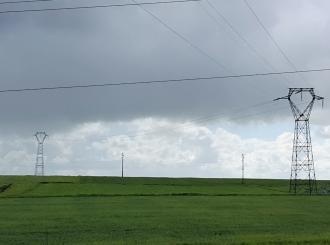
Nouakchott, Mauritania, 26 March 2018: Despite Africa’s great progress and successes in the energy sector, current policies and commitments are not strong enough for a fast development and transformation of the region’s energy sector, said Lilia Hachem Naas, Director of the ECA Office for North Africa to African Ministers of on 23 March in Nouakchott.
According to ECA data, although Africa is endowed with energy and renewable energy resources, it is yet to fully exploit them to meet the constantly increasing demand. While the number of Africans without access to electricity decreased from 640 to 590 millions between 2013 and 2016, their numbers may increase again in 2030.
This shows how crucially important it is for stakeholders to coordinate their efforts to increase energy production and distribution at the national, sub-regional and continental levels, using cross border infrastructures. “As part of the UN family, the ECA supports energy development in Africa, and particularly the objectives of the Sustainable Development Goal #7 of access to affordable and clean energy, as well as transformative ideals enshrined in Africa’s Agenda 2063”, added Naas.
Ministers of energy, experts and international and African organization representatives took part in the First Ordinary Session of the AU Specialized Technical Sub-Committee on Transport, Transcontinental and Interregional Infrastructure, Energy and Tourism (STC-TTIIET). For three days, they examined the recommendations of the Lomé (March 2017) and Energy Sub-Committee (2017-2019) action plans.
Participants also discussed information sharing and coordination around initiatives taken by stakeholders throughout Africa in areas such as energy technologies, policies, regulations and infrastructure development. The subcommittee on energy also discussed the setup of a monitoring and evaluation system to follow-up on the implementation of the partners’ action plans on energy.
ECA, working in a collaborative way with other regional partners, has been actively involved in a number of key initiatives. They include the commission’s contribution to the mainstreaming of the African Bioenergy Framework and Policy Guidelines and the establishment of the African Climate Resilient Investment Facility. ECA also worked with the International Hydropower Association (IHA) on the set up of a template that will assess the energy and non-energy benefits of all sizes of hydropower projects, and with the Sustainable Energy for ALL team (SE4all)to coordinate data collection on biomass use, data analysis and dissemination.
For more information about this event, please visit https://au.int/ie and www.uneca.org.
تنسيق متزايد، حاسم لحصول الجميع على الطاقة الكهربائية في سنة 2030 (اللجنة الاقتصادية لأفريقيا)